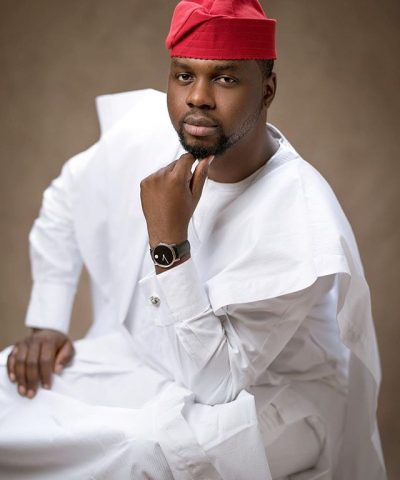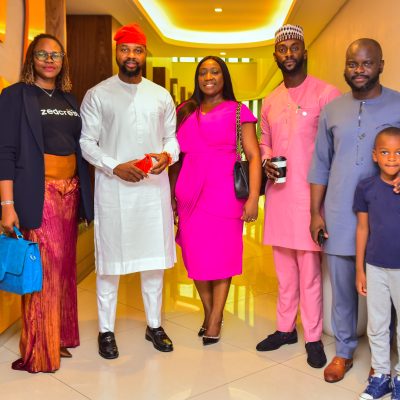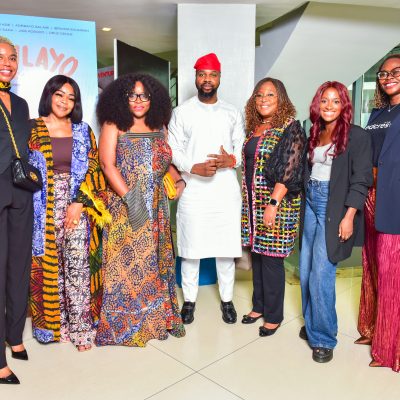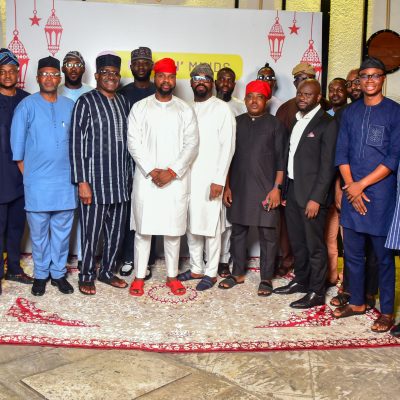
We know what moves people, what pulls them to act, what makes them raving fans, says Adebola Williams, co-founder of RED | For Africa in this interview with Segun Adams.
Excerpts:
How has RED evolved over the years, and what has that journey been like for you as the helmsman?
Every single person who has been a part of our 15-year story, including those who simply follow the RED brand, understand how we started as young entrepreneurs who had a mission to inspire and celebrate change-makers who were investing time, money, and effort in changing the African narrative. At the same time, we also understood the power of the media in executing our vision. So though the media is our passion, our goal really lies in social engineering – building a world we want to see, one community at a time.
Currently, our business has evolved into a three-pronged approach: content, consulting, and cultural intelligence. As the CEO of the company, the excitement in the job comes from understanding that for 15 years, we have consistently worked with millions of young Africans who believe in our vision, even among those in a much younger generation.
Have the changes in media consumption by the consumer moved the needle in terms of PR as a whole in Nigeria? Basically, how relevant is PR in the current chimes?
We’ve gotten to the stage where brands can now create their own content to attract their target market. This means putting out content and telling stories consumers actually want to see and hear without blatantly blasting them with features, specifications, pricing, and appeals to buy.
The industry has become a lot more interactive, with consumers insisting on experiences and excitement, and brands are complying by making their communication more fun and appealing. Public relations is definitely relevant, and what we need to discuss is how we can improve skills and opportunities for professionals and students in the industry.
There’s been some speculation over the direction of RED | For Africa, and some experts say they perceive a future in strategy consulting. What is the truth?
Yes. Strategy consulting is the future, our future. We are boots-on-the-ground culture experts with a content and project eco-system across Sub-Saharan Africa that keeps us deeply connected to and gives us unrivaled credibility with youth audiences across sectors, industries and nations.
We have data, consulting expertise, and the smartest guys in the room. But what makes us different from other consulting firms? We are your inroads into the culture. We understand that formal structures don’t guarantee real change. PowerPoint presentations and bloodless data points don’t tell real stories. Change happens in, around and at the edges of the culture, and can only be leveraged authentically and effectively by connectors who have a grip on all the moving parts. Connectors are the ones who build ecosystems, creating and sustaining the conditions for informal actors to take the stage, and thus ensuring momentum.
Our connector-skills have been honed over 15 years – as Africa’s demographic, economic and political trendlines took a sharp turn – via our continent-wide proprietary assets including The Future Awards Africa, REDx, The Future Enterprise Support Scheme and Y! Africa. They give us a crucial edge.
Data is easy to find, simulate and buy. Cultural insight – figuring out what makes people move and act everywhere from politics to music – isn’t. Our consulting authority comes from the youth and the streets. We are the consultancy that understands grassroots phenomena and local insights.
In your role as a CEO of RED | For Africa, a top PR firm, how do you approach companies that don’t get the relevance of consulting and PR? How do you make that argument?
Over the years, RED has grown to become a network of companies with investment and practical experience in public relations, media and content creation, human development, and technology, especially through digital media. As a result, we were able to offer our clients a broad range of services based on our expertise across several fields, and our understanding about the different phases or processes, from providing necessary information to highlighted problems, to make sure that these learnings can be facilitated to improve organisational effectiveness.
For public relations, as long as communities and brands need to engage each other based on trust, the industry is not going anywhere. What will continuously change are the methods to improve communication, and the need for innovation in creating a more engaging, relatable, exciting message.
The audience, just like consumers, needs to believe, and brands cannot achieve this effectively except through public relations. For RED, our clients have an extensive opportunity to provide excellent consumer experiences by leveraging on different expertise and platforms selected across the company – design thinking, data collection and feedback, content, implementation, and so on.
What kind of impact do you think content and cultural intelligence are making on consulting?
We are currently operating in an industry in which brands need to build trust, cultivate customer loyalty, and sustain consumer interest. So instead of the previous one-off communication in advertising, brands are fully involved in compelling brand storytelling through marketing communications – which has also made branded content marketing an important strategy. It’s not just an opportunity to be positive about a new feature or must-have purchase, but a method to create and reveal positive, productive content that celebrates the individuality, and that engages consumers through the brand personality.
Rather than operating as a company that only offers advice to clients, our consultancy services are built on intelligence, expertise, and capacity to articulate, curate, accelerate information/content into solutions and then connect to those who need to make decisions that move nations and communities forward. So the impact of content and cultural intelligence is evident through our business of curating cultural capital.
In providing value through consulting, it is essential to have healthy and current cultural quotient across several industries and be able to relate and work effectively across cultures.
What would you say about competition, especially in the strategy consulting space?
There are several firms in Nigeria involved in the space, with many focused on building relevance through brand building, corporate financing, IT, human management, taxation across different industries. Our strength lies in our capacity to use the media, data, and technology to solve customer-centered problems. Our proposition to corporations, governments, donors, bilateral and multilateral, embassies, businesses, politicians, investors, and HNIs is simple – “We know what’s happening with the culture, and we are the ones that connect you to the streets.”
When you say customer-centric solution firms, what exactly does that mean for clients and their customers?
Our business approach is hugely focused on creating a positive experience for the client/customer by maximizing our offerings and building relationships. Our proprietary tool, the PainPoint Matrix, is centered around these two essential questions: What’s the biggest problem you are facing with your customers or target audience – at the moment, and for the future? What’s the biggest growth opportunity with your customers or target audience – at the moment, and for the future?
To help you answer those questions, we have successfully leveraged on both expertise and platform in media and culture, alongside data and technology to solve customer-centered problems and deliver unforgettable customer experiences. We have also built a strategy and execution framework to bring those answers to live, which is the full power of the RED platform – providing end-to-end solutions across the customer value chain: insight: consumer behavior and market research; product development; brand building; marketing and communication; commerce: sales and distribution; communities: customer service and engagement and sustainability: social investment and stakeholder management.
No other platform working in sub-Saharan Africa has the potent and evolving mix of media-based brands, platforms and content that constitute the full power of RED – working boots-on-the-ground over the past 15 years with communities, corporations, politicians, activists, diplomats, retailers, policy-makers, content creators, change-makers, gatekeepers and culture champions across East, West, Southern and Central Africa.
What is your assessment of PR in Nigeria compared to other climes is the industry in Nigeria in tandem with global best practices?
Just as it is currently being witnessed globally, public relations is witnessing in Nigeria is also going through a revolution. What we are lacking is how we can quickly and easily adapt to these changes in strategy, innovation and consumer engagement.
What’s your reading of the Nigerian economy and RED’s role in the coming years?
While the economic outlook still remains fragile, an important sub-sector for national growth has been SMEs, especially through youth entrepreneurship and job creation. What everyone can see is that we are steadily creating a tax economy, where the government would need less dependence on crude and foreign borrowing. But if the CBN directive on loan-to-deposit is fully implemented by Nigerian banks, there’ll be a significant increase in credit available for the private sector, creating jobs, and spurring tax revenues.
With so many young graduates and inspiring entrepreneurs passing through The Future Project, our human development company, and even The Future Awards Africa, we have immense opportunity to boost young businesses SMEs, encourage innovation, reduce imports, and increase foreign direct investment, thereby boosting the naira and fighting inflation.
Can we say RED | For Africa will be around in the next few years?
I’ll definitely agree with you, but I’ll say for many more decades. Basically, because our business model has never been static, and there are always changes and improvements due to internal discussions, advice from staff and other internal stakeholders, market activities, and cultural revolution that the world is witnessing almost daily.
How are data shaping strategy consulting and PR in today’s world?
Data science has become a commodity for clients and professionals. Although it is evolving, it is important in identifying meaningful patterns, especially in understanding organisational performance metrics, and complex changes happening in industries.
Although data is also evolving option in public relations, many professionals now leverage these opportunities for coverage tracking and measuring brand hits and understanding the landscape for constant improvement. PR professionals also use data for understanding clients’ problems and shape the way in which they’re approached. So, as markets continue to evolve, organizations can adapt and make real-time decisions more quickly than their competitors.




